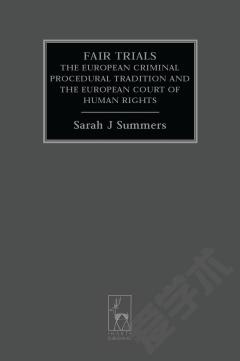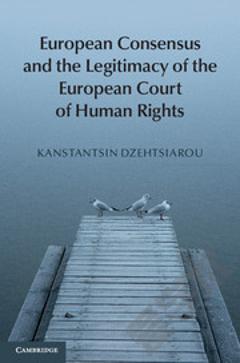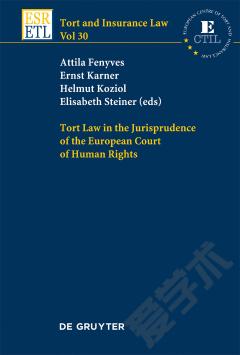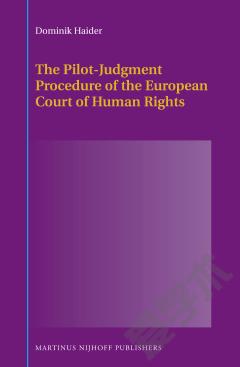Fair Trials —— The European Criminal Procedural Tradition and the European Court of Human Rights
----- 公平审判:欧洲犯罪审判程序惯例与法庭中的人权
Part One 1. The Enduring Legacy of 'Inquisitorial' and 'Accusatorial' Procedural Forms in the Debate on Comparative Criminal Procedure AThe Enduring Legacy of the Inquisitorial/Accusatorial Divide BThe Connection to Legal Nationalism CDeveloping a New Approach for Analysing European Criminal Procedure Law 2. The Origins of the European Criminal Procedural Tradition AIntroduction: The Importance of the Developments of the Nineteenth Century BThe Development of the 'Accusatorial Trinity' CJudicial Impartiality (i)The Separation of the Functions of 'Judging' and Prosecuting in France and Germany (ii) Impassivity or Activity: The Role of the English Judge in the Examination of the Evidence (iii) Institutional Impartiality DThe Public Hearing Requirement EImmediate and Oral Proceedings (i) Immediate and Oral Examination of Evidence at Trial (ii) Consideration at Trial of Evidence Collected before the Trial and Submitted in Writing (iii)Immediate and Oral Proceedings as Fundamental to the Accusatorial System FConclusions 3. The Rights of the Defence: Lessons from the Nineteenth Century AThe Institutional Nature of the 'Rights of the Accused' BThe Rights of the Defence at Trial (i)The Presence of the Accused (ii) Participatory Rights of the Accused (a) The Developing Conception of the Accused as a Party (b) Understanding the Nature of the Accused's Participatory Rights: The English Reforms of the Late Nineteenth Century (c) The Assistance of Counsel CThe Role of the Defence in the Pre-trial Phase (i) The Pre-trial Phase as 'Investigative' (a) The Questioning of the Accused (b) The Examination of Evidence (ii)The Determinative Reality of the Investigation DConclusions Part Two 4. Defining Fairness in Article 6(1) ECHR AIntroduction BIdentifying Vargha's 'Accusatorial Trinity' CThe Role of the 'Equality of Arms' Doctrine DThe Relationship between the Adversarial Procedure Requirement and the Equality of Arms EThe Court's Interpretation of the Adversarial Procedure Requirement in Criminal Proceedings (i)The Right to be Present at Trial (ii)Knowledge of the Other Side's Submissions (iii)Opportunity to Comment on the Other Side's Submissions FThe Relationship between the Defence and the Prosecution GFairness and Implied Procedural Forms 5. The Structure of the 'Trial' in Article 6 ECHR AIntroduction BThe Defence's Right to Challenge Witness Evidence CWitness Evidence in Europe: An Overview DRegulating Witness Evidence: Article 6(3)(d) (i)What is an Adequate and Proper Opportunity to Challenge Witnesses? (a) The Identity of the Witness (b) The Importance of the Witness (ii)When Should Witnesses be Examined? EThe Importance of the Trial as the Forum for Confronting Witness Evidence FReconciling Examination of Witnesses in the Investigation Phase with the 'Accusatorial Trinity' (i)The Presence of Counsel during Pre-trial Examination of Witnesses (ii)The Presence of an Impartial Supervisory Authority during the Examination of Witnesses (iii)Immediacy G The Privilege Against Self-incrimination (i) Improper Compulsion (ii) Indirect 'Acceptable' Compulsion (iii) The Relationship between Compulsion and the Assistance of Counsel (iv) The Privilege against Self-incrimination as a Substitute for the Refusal to Insist on Adversarial Principles in the Investigation Phase HThe Root of the Problem: Defining the 'Trial' (i)The Investigation Phase Lacuna (ii)Explaining the Investigation Phase Lacuna: Les Travaux Preparatoires (iii)Resolving the Fairness Deficit: Acknowledging the European Procedural Tradition 6. Reassessing Fairness in European Criminal Law: Procedural Fairness, Defence Rights and Institutional Forms AProcedural Fairness as Individual Rights BProcedural Rights and Institutional Forms CArticle 6 ECHR and the European Criminal Procedural Tradition DTowards an Institutional Understanding of Fairness in Criminal Proceedings
{{comment.content}}








 京公网安备 11010802027623号
京公网安备 11010802027623号